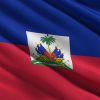 Soldiers and police officers take part in a security operation in the Rivera del Río area of Esmeraldas, Ecuador Photo: AFP
Soldiers and police officers take part in a security operation in the Rivera del Río area of Esmeraldas, Ecuador Photo: AFP
Galapagos Islands The islands off the coast of Ecuador are more famous for their unique wildlife than for organized crime, but the archipelago has become a staging post for international drug traffickers.
The islands that inspired Charles Darwin's theory of evolution become a pit stop known as the «gas station of the Pacific». for ships carrying cocaine from Ecuador to the US via Central America.
According to the authorities, human trafficking routes are increasingly passing by the Galapagos Islands because boats are more difficult to detect and track on the high seas.
“Traffickers do not use the shortcut,” said the commander Ecuadorian Navy, who asked to remain anonymous. «Their priority is to arrive undetected, not quickly.»
That 600-mile detour means ships need to refuel, and the secluded maze of waterways through the 127 Galapagos Islands provides the perfect cover.
 Soldiers and police officers take part in a security operation in the Rivera del Río area of Esmeraldas, Ecuador. Photo: AFP
Soldiers and police officers take part in a security operation in the Rivera del Río area of Esmeraldas, Ecuador. Photo: AFP
“Boats anchor off the coast of one of the many islands, and local fishermen sail to meet them with fuel. — said the commander of the Navy.
Ecuador has quickly become a key departure point for international drug traffickers exporting cocaine originating in Colombia and Peru.
The country is currently engulfed in an epidemic of violence, with President Guillermo Lasso declaring a state of emergency last month, on the 42nd 2019.
As part of the measures, the President authorized the carrying and use of weapons and pepper spray by civilians.
Drug trafficking in the Galápagos
The move comes after nine fishermen were shot dead in a massacre in the Pacific port city of Esmeraldas. CCTV footage shows 30 heavily armed men arriving by boat and shooting people gathered on the waterfront. Spectators dived into the water or ran for cover to avoid bullets.
Gangs, often associated with the increasingly powerful Albanian cartels, have turned onto the Galapagos route to avoid stricter US patrols in the Caribbean and North Atlantic.
Gasoline is shipped to the Galapagos Islands from the mainland in advance. Mexican cartels, backed by local gangs, built makeshift warehouses hidden under tropical bushes to store it. Authorities seized five kilos of cocaine hidden on a Navy patrol boat off the coast of the Galapagos Islands last December.
Inspection of banana shipments in the port of Guayaquil Photo: VICTOR RAYSON
Ecuador's armed forces are regularly found to be collaborating with criminal gangs. Intelligence reports leaked to the press earlier this year show that 43 sailors are under investigation for links to organized crime.
“This is the rot that we need to clean out,” said the fleet commander. “But at the end of the day, we are competing with cartels that offer our people huge sums of money, and for some it may be too good to refuse.”
Similar story with local fishermen. They are recruited by drug traffickers to transport cocaine on large speedboats waiting at sea, and sometimes they can be hired for a full five-day trip to Central America via the Galapagos Islands.
 Authorities monitor the port of Guayaquil Photo: VICTOR RAYSON
Authorities monitor the port of Guayaquil Photo: VICTOR RAYSON
Jaramijo is located a few miles north of the city of Manta on the Pacific coast of Ecuador. It is a sleepy village surrounded by miles of sandy beaches and a newly built harbour. But fishing here is not industrial. It is small-scale and low-tech. For fishing families living on just over $100 a month, the drug trade can be a tempting proposition.
In addition to the cocaine trade, local residents are also hired to transport fuel to clandestine warehouses in the Galapagos Islands. Fuel for fishing families can often be subsidized, and drug gangs enjoy lower prices.
Troubled local fishermen can earn $30,000 in less than a week working with cartels.
B Haramijo, 2,500 families depend on informal fishing and the Navy estimates that half of them work with organized crime.
 the islands are known for a large number of endemic species.
the islands are known for a large number of endemic species.
Several hundred people have been arrested for their involvement, and many of them are languishing in prisons abroad, mostly in Central American countries or in the United States.
“Some seduced by money,” Elena Veliz Lopez told The Telegraph from the Organization of Fishermen's Wives Abroad. “But many are also coerced and threatened and have no choice but to cooperate with the criminals.”
“These communities have ancestral knowledge of the seas. These fishermen can easily go 600 miles at sea,” the fleet commander said. “It is a skill, a tradition that has been passed down from generation to generation for years. Many of them are better than my trained sailors.”
But this skill leaves them vulnerable, and many fishermen end up caught in the crossfire between criminal rivals vying for control of these lucrative trafficking routes.< /p>
«Desperate measures for desperate times,» said Ecuadorian human rights activist Billy Navarrate. «It exacerbates the violence, it doesn't solve it.»
























































Свежие комментарии